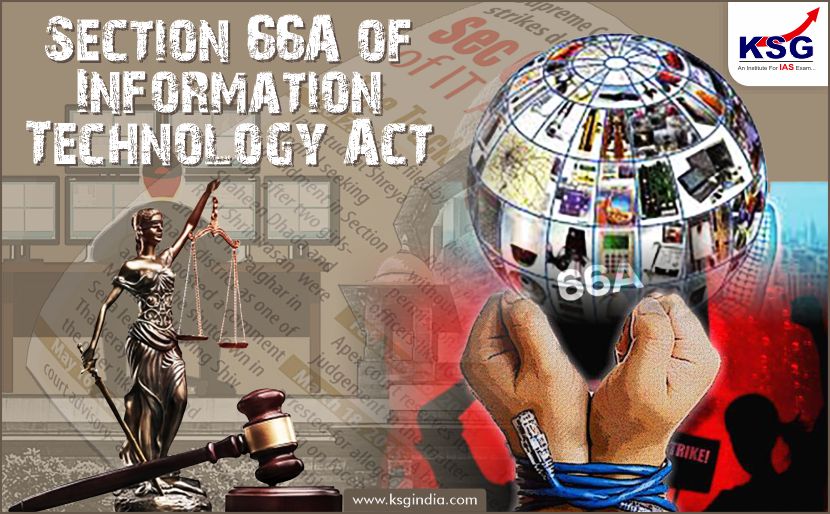Section 66A of Information Technology Act

The Supreme Court issued notices to all states, Union territories and registrars general of High Courts on a plea highlighting continued use of Section 66A of Information Technology Act
Section 66A of Information Technology Act

The Supreme Court issued notices to all states, Union territories and registrars general of High Courts on a plea highlighting continued use of Section 66A of Information Technology Act even though it was held unconstitutional by the court in 2015. “This cannot continue,” the court said.
What is Section 66A of IT Act?
Section 66A states that- Punishment for sending offensive messages through communication service, etc. -Any person who sends, by means of a computer resource or a communication device-
- any information that is grossly offensive or has menacing character; or
- any information which he knows to be false, but for the purpose of causing annoyance, inconvenience, danger, obstruction, insult, injury, criminal intimidation, enmity, hatred or ill will, persistently by making use of such computer resource or a communication device; or
- any electronic mail or electronic mail message for the purpose of causing annoyance or inconvenience or to deceive or to mislead the addressee or recipient about the origin of such messages,
- shall be punishable with imprisonment for a term which may extend to three years and with fine.
Shreya Singhal v. Union of India Case:
On March 24, 2015, a bench of Justices J. Chelameswar and R.F. Nariman ruled in Shreya Singhal v. Union of India declared Section 66A unconstitutional for “being violative of Article 19(1)(a) and not saved under Article 19(2).”
Article 19(1)(a) gives people the right to speech and expression whereas 19(2) accords the state the power to impose “reasonable restrictions” on the exercise of this right.
Why was Section 66A Criticized?
The problem was with the vagueness about what is “offensive”. The word having a very wide connotation, was open to distinctive, varied interpretations. It was seen as subjective, and what might have been innocuous for one person, could lead to a complaint from someone else and, consequently, an arrest under Section 66A if the police prima facie accepted the latter person’s view.
Present Scenario:
The Union Ministry of Home Affairs (MHA) has requested States and Union Territories (UTs) to direct all police stations under their jurisdiction not to register cases under the repealed Section 66A of the Information Technology Act, 2000.
The MHA has also requested that if any case has been booked in States and UTs under Section 66A of the IT Act, 2000, such cases should be immediately withdrawn.
